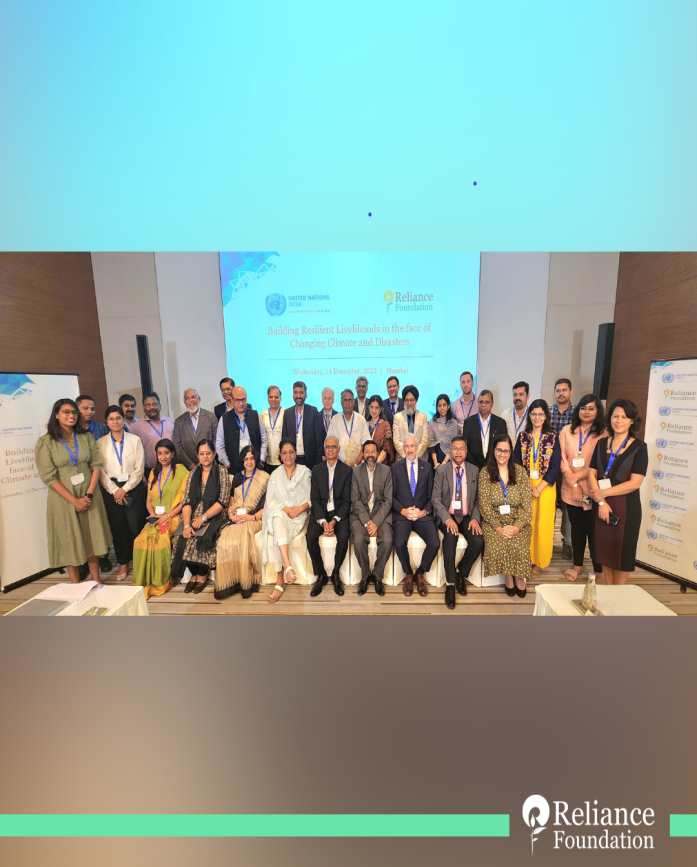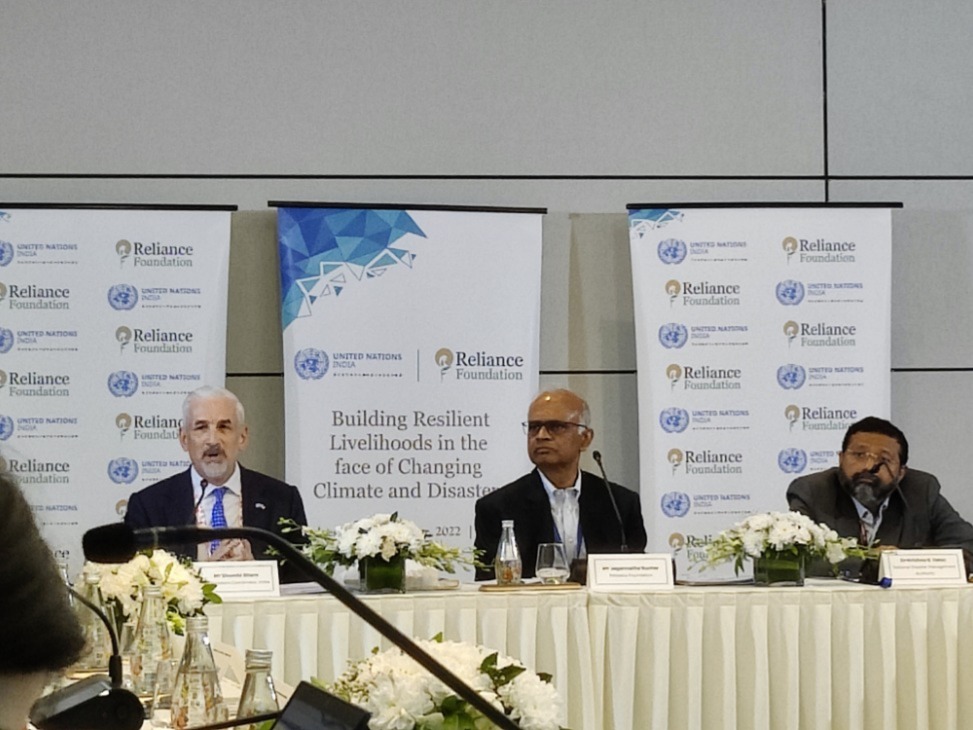Building Forward Better: RF-UN India roundtable discusses resilient livelihoods and disaster risk reduction

December 14, 2022: The need to build forward better, create a strong livelihood system and recognise India’s leadership in Disaster Risk Reduction for the world, during the G20 Presidency were key points highlighted during a multi-stakeholder roundtable on ‘Building Resilient Livelihoods in the face of changing climate and disasters’ here today. Organised by Reliance Foundation in association with the United Nations in India, the round table saw various eminent speakers and experts on the subjects, from across various UN organisations, academic, private sector and civil society organisations from across the country.
The group recommended the need for further coordinated effort by stakeholders with communities, breaking down the silos between governments, businesses, civil societies and SHGs so it is inclusive and leaving no one behind.
In his keynote address at the roundtable, Dr Krishna S. Vatsa, Member, National Disaster Management Authority said: “Livelihood is not one area; it is a system. We need an approach where all stakeholders including the government and private sector come together and support the system. Unless we diversify and modernise livelihoods, and ensure that people are more and more integrated into the formal system, we will not be able to protect the vulnerability of livelihoods system.”
Mr Shombi Sharp, UN Resident Coordinator in India, said, “Today's discussion, bringing diverse public and private stakeholders together around the important issue of supporting livelihoods and dignity in an age of increasing disaster risk could not be more timely. Countries like India are highly impacted by the mounting effects of climate change on lives and property. The good news is that India is investing significantly in building resilience both domestically, and has created the first Disaster Risk Reduction Working Group of the G20 under its Presidency to drive the issue forward globally as part of a broader climate action and justice agenda. The UN in India remains a committed partner to help achieve the SDGs.”

“Technological innovations and advancements are creating opportunities to predict disasters, support risk reduction & improve resilience. At Reliance Foundation, we have consistently focused on supporting vulnerable communities through technology and data-driven early warning advisories. The Roundtable offers opportunity to discuss how we can use such technology and data for Disaster Risk Reduction and help support this global call collectively with government and other stakeholders- to finally build resilient communities” said Mr Jagannatha Kumar, CEO, Reliance Foundation. Reliance Foundation shared a publication ‘Disaster Management Approaches Towards Resilient Communities: Learnings from Reliance Foundation’s Experiences’ documenting decade-long work in Disaster Management with responding to 48 disasters across 293 districts and aiming to further deepen the commitment to Disaster Risk Reduction in the country.
A range of high-level speakers including those from the government including from the state and central disaster management authority, UN organisations FAO, UNICEF, UNDP, UN Women, civil society organisations, private sector, technical institutions and academia participated. The stakeholders recommended social protection, reduction of vulnerabilities and sustainable long-term planning with value chain strengthening to build resilient livelihoods. The series of roundtable discussions would be continued to take this agenda ahead.




